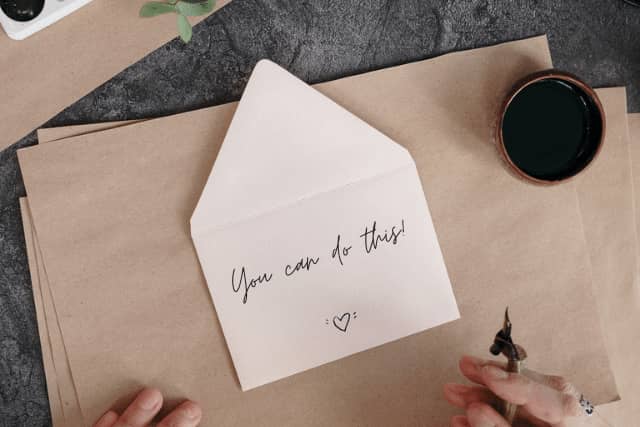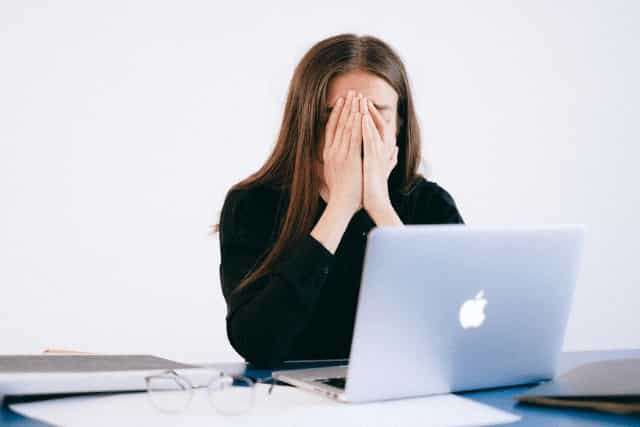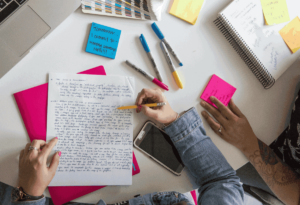Throughout my journey, I found several ways that keep my anxiety at bay:
1) Understand What Triggers Your Anxiety
 Image source: Pexels
Image source: Pexels
The best way to conquer your anxiety is to know what causes it.
It could be family, school, and even relationships. Keep a journal to record when you’re feeling anxious or stressed. This helps you to look for a pattern of your anxiety triggers. For more convenience, you can always jot them down using a note application in your smartphone.
Examples of triggers can include caffeine, drinking alcohol, or even smoking. However, not all triggers are the same for every person. Some triggers may even stem from long-term issues, such as financial difficulties or a particular individual *cough cough* boyfriend/girlfriend issues?
The effort to locate your triggers takes some time, but it definitely helps in the long run.
Here are a few general triggers listed by Healthline:
- a stressful study environment
- genetics — anxiety could run in your family
- withdrawal from certain medications or drugs
- side effects of certain medications
- trauma
- phobia
- some chronic pain or chronic illnesses like heart disease, diabetes, or asthma
- having another mental illness
As explained by Healthline: “When you do figure out your trigger, you should try to limit your exposure if you can. If you can’t limit it — like if it’s due to a stressful work environment that you can’t currently change — using other coping techniques may help.”
2) You Can’t Control Everything, And That’s Okay
 Image source: Pexels
Image source: Pexels
If you are someone who frets over everything, it’s time to take a breather.
The truth is, you can’t control many things that happen in life. Worrying about something that you know you couldn’t prevent, such as natural disasters and diseases will keep your mind excessively occupied. Eventually, you will be wasting precious time and mental energy over something that you have no control over.
Sometimes, the only thing you can control is how you react. While you cannot control how the other person behaves, you have power over your attitude and reaction. When you control yourself instead of letting the situation control you, you will feel less overwhelmed and drained.
Over time, you’ll find yourself less affected. As the experts say, it’s just ‘water off a duck’s back.’
3) You Are Stronger Than You Think
Do you have plenty of ‘what ifs’ before you actually do something?
When self-doubt starts to creep in, try to identify your fears. What are you afraid will happen? Is it a devastating outcome? Or are you afraid that you couldn’t cope with disappointment?
The scenario that keeps repeating in your head like a broken record is usually not as catastrophic as you imagine. Don’t let self-doubt prevent you from achieving your fullest potential. And trust me, you are stronger than you think. You are capable of handling the worst-case scenario, and knowing this will motivate you to take better action.
4) Create Healthy Affirmations
 Image source: Pexels
Image source: Pexels
We know too well that words can hurt. But in this case, words can heal us too.
We are often the harshest critics of our own self. My anxiety developed partially because I was too hard on myself. I was always nitpicking at the work I had done, when it was perfectly fine to others. It took a toll on me mentally, so I developed my own healthy ‘mantras’ that keep me going even until today.
Whenever I catch myself feeling anxious over something I have no control over, I say “I am strong enough to handle it” or “This too shall pass”. They remind me not to waste my time and effort on things I cannot change. It will all soon be in the past anyway!
5) You Need Adequate Sleep
The Sleep Foundation recommends 7 to 9 hours of sleep for young adults and adults.
But let’s be honest: When was the last time you actually slept well at all?
When anxiety kicks in, your body may experience muscle tension, headaches, and even insomnia. According to Medical News Today, a sleepless night can cause anxiety to shoot up to 30%. Yikes!
Getting enough deep sleep protects against anxiety. Eti Ben Simon, postdoctoral fellow at the Center for Human Sleep Science at UC Berkeley mentions that “Deep sleep had restored the brain’s prefrontal mechanism that regulates our emotions, lowering emotional and physiological reactivity and preventing the escalation of anxiety.”
The most important rule to sleep better is to stop using electronic devices at least 30 minutes before bedtime. Instead, reading a book helps you fall asleep faster and it makes you feel great the next day. Time to blow the dust off your books and start reading! If reading is not your favorite pastime, here are some tested and trusted tricks that I use:
- Listen to the sounds of nature. The sound of waves is my personal favorite!
- Take a warm shower before bed.
- Drink chamomile tea – it’s a natural sleep inducer and helps to reduce anxiety.
- Visualize yourself in a tranquil environment. Waterfalls always work for me.
Lastly, be kind to yourself. It’s easy to let the words of others get into your mind – expectations, judgments, unsolicited advice – you don’t have to let them in. You’re in control after all. 😉



 Image source:
Image source: 
 Image source: Pexels
Image source: Pexels Image source:
Image source:  Image source: Pexels
Image source: Pexels










